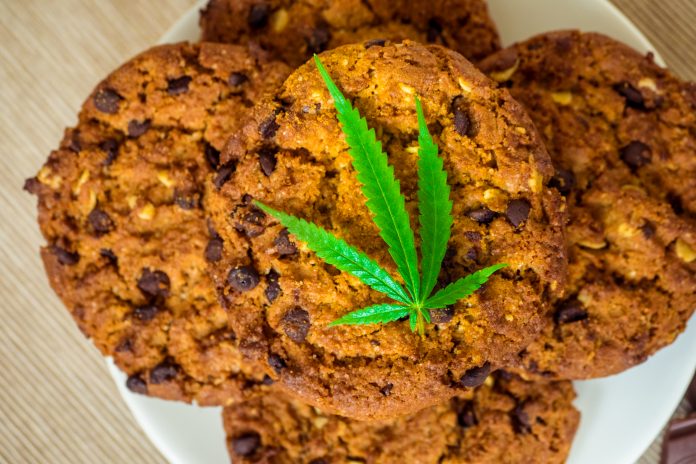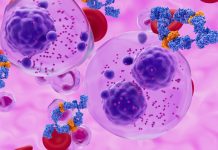Here, European Union (EU) Novel Food regulations are thoroughly explored and questioned in the context of CBD in food
The recent change in the Novel Food Catalogue, which is not a binding document, brought many negative consequences on the EU industrial hemp sector. Even if hemp extracts are not formally and legally forbidden by Europe, disproportionate and senseless measures have been taken against food products containing CBD in many European countries.
What does the change mean?
It means that this change in wording has turned the whole previously legitimate hemp extract and hemp (leaves/infructescense/flowers) supply into an industry that is now ‘novel’ and is required to apply for marketing authorisation prior to placing its products onto the market. This would be a long and very expensive process placing the entire EU hemp industry at risk. In addition, it is wholly unnecessary, illogical and illicit considering that:
- The hemp industry received written confirmation from the EU in 1998 that hemp flowers/leaves are permitted for food use, and
- Hemp has been in the human food chain for millennia and it is disingenuous to argue that leaves and flowers in food are novel.

What can you extract from the plant?
…Following any of the above four methods mentioned, you can obtain hemp extracts rich (but not unnaturally enriched) in CBD and other health-supporting compounds. CBD is one of the 144 cannabinoids present in the hemp plant (mainly in the green parts of the plant). Consumers are buying CBD mainly for its health maintaining and supporting (promoting) properties.
Recent action by Member States and The Commission
On the 20 January 2019 the previous entries for “Cannabis sativa L.” and for “Cannabidiol” were both rephrased.
When the NF directive (Regulation (EC) 258/97) became implemented in 1997, the Commission requested the hemp industry provide evidence of consumption which was collated by Hanfgesellschaft and submitted to the Commission for their consideration. In responses from February and March 1998, the Commission confirmed in letters to two FBOs that “hemp flowers… are considered to be food ingredients” and that “foods containing parts of the hemp plant do not fall under the scope of the Regulation (EC) 258/97” and a thriving hemp industry has since developed.
Below is an analysis of the various entries relating to Cannabis Sativa L (hemp), Cannabidiol (CBD) and the recent addition of a new category, Cannabinoids.
What do the changes mean for the hemp industry?
According to the catalogue, all food/food supplements products containing hemp leaves/infructescence (tea, snacks, muesli etc) or containing hemp extracts now need to obtain a pre-marketing authorisation in order to being placed on the market. These authorisations are costly in terms of time as an authorisation process takes two years plus and significant amounts of money (€300,000+ per product). Only large operators and corporations will be able to afford the authorisation process. This way, Small and Medium Enterprises which mainly compose the EU market today, will be naturally left out of the market and alongside, this could potentially destroy the entire rapidly emerging and thriving European hemp industry.
If Europe will not allow FBOs to fully exploit the plant as a direct consequence the EU hemp sector will collapse in favour of other markets, such as US, Canada, Switzerland and China.
European Industial Hemp Association (EIHA.org) in cooperation with EU institutions are planning the next steps to be further developed with the aim to restore a regulation able to fulfil both scopes (part 1 point 2 of the NF regulation): protect the consumers and guarantee a smooth functioning of the internal market.
What else is at stake?
Hemp is emerging as one of the most rapidly growing agricultural and industrial markets in decades.
10,000+ applications including bioplastics, construction, high protein foods and beverages, food supplements, textiles, paper products, composites, biofuel, graphene substitutes
Major environmental benefits
- Carbon sequestration, enhanced biodiversity, land reclamation and phytoremediation, environmentally responsible industrial and consumer products;
- Profitable cash crop for farmers when permitted to utilise the whole plant;
- Plus multi-billion-euro downstream markets.
Key environmental benefits
Hemp protects the environment
Hemp can be grown without the use of herbicides, pesticides or fungicides. Hemp is in the top 5 out of 23 crops for biodiversity friendliness, performing better than all major crops such as wheat, maize or rapeseed.
Excellent carbon sequestration
One hectare of industrial hemp can absorb 15 tonnes of CO2 per hectare. In comparison, agricultural land use emits approx. 3 tonnes CO2 per hectare. Hemp’s rapid growth also makes it one of the fastest CO2-to-biomass conversion tools available, more efficient than agro-forestry.
Restores soil health
Hemp is a valuable preceding crop in rotations. After cultivation the soil is left in optimum condition.
Making one tonne of steel emits 1.46 tonnes of CO2 and 198kg of CO2 is emitted to make one tonne of reinforced concrete. One square metre of timber-framed, hemp-lime wall, after allowing for the energy cost of transporting and assembling the materials actually stores 35.5kg of CO2.
Body panels and chassis components in cars made from hemp are lighter weight than steel or metal which improves fuel consumption. Every bit of plastic, carpeting and upholstery in a car can be made of hemp.
For hemp to be a viable cash crop for our farmers and processors, they need to be empowered to utilise the entire plant.
The new Novel Food classification threatens the entire nascent environmentally friendly European hemp industry and we seek your support to raise awareness.
Please note: This is a commercial profile











